NI Child Safeguarding
PART 4: CODE OF BEHAVIOUR
Codes of behaviour provide protection for everyone, including children, bishops, clergy, staff and volunteers. It is important that everyone involved has guidelines on what is expected, and what is not acceptable, with respect to their behaviour. The code of behaviour for bishops, clergy, staff and volunteers will help to create a supportive environment to provide a child-centred approach for the children involved in the Church. The code of behaviour for members will help to provide a contract for the children to agree to and abide by.
CODE OF BEHAVIOUR FOR BISHOPS, CLERGY, STAFF AND VOLUNTEERS
The code of behaviour for bishops, clergy, staff and volunteers has been categorised under five headings:
- Child-centred approach;
- Best practice;
- Inappropriate behaviour;
- Physical contact;
- Health & Safety.
CHILD-CENTRED APPROACH
- Treat all children equally;
- Listen to and respect children;
- Involve children in decision-making, as appropriate;
- Provide encouragement, support and praise (regardless of ability);
- Use appropriate language (physical and verbal);
- Have fun and encourage a positive atmosphere;
- Offer constructive criticism when needed;
- Treat all children as individuals;
- Respect a child’s personal space;
- Discuss boundaries for behaviour and related sanctions, as appropriate, with children and their parents/guardians;
- Agree a group code of behaviour at the beginning of each year/session;
- Encourage feedback from groups or group members;
- Use age-appropriate teaching aids and materials;
- Lead by example;
- Be aware of a child’s other commitments when scheduling activities, e.g., school or exams;
- Be cognisant of a child’s limitations, due to a medical condition for example;
- Create an atmosphere of trust;
- Respect differences of ability, culture, race and sexual orientation.
BEST PRACTICE
- Ensure that a membership registration form is completed for each child on an annual basis
(name, address, phone, special requirements, attendance, emergency contact);
- Make parents/guardians, children, and visitors aware of Safeguarding Trust;
- Have emergency procedures in place and make all aware of these procedures;
- Be inclusive of children with special needs;
- Plan and be sufficiently prepared, both mentally and physically;
- Report any concerns to the Panel and follow reporting procedures;
- Report to the Parish Panel any concerns that they may have about a fellow staff member’s or volunteer’s practice which may cause harm to a child or the reputation of the Church of Ireland and complete an incident form;
- Report to the relevant person any concerns that they may have about bishops and clergy practice which may cause harm to a child or the reputation of the Church of Ireland and complete an incident form;
- Encourage children to report any bullying, concerns or worries and to be aware of the Anti-Bullying Policy;
- Observe appropriate dress and behaviour;
- Evaluate work practices on a regular basis;
- Provide appropriate training for clergy, staff and volunteers;
- Report and record any incidents and accidents;
- Update and review policies and procedures regularly;
- Keep parents/guardians informed of any issues that concern their children;
- Ensure proper supervision based on adequate ratios according to age, abilities and activities involved;
- Observe appropriate gender balance for residentials;
- Don’t be passive in relation to concerns, i.e., don’t ‘do nothing’;
- Don’t let a problem get out of control;
- Avoid, if at all possible, giving a lift to a child and if you do then make sure that parents/ guardians are informed;
- Maintain awareness around language and comments made, verbally and in any written communication. If you think that something you said may have caused offence or upset, then try to address it in an apologetic, conciliatory and sensitive manner.
INAPPROPRIATE BEHAVIOUR
- Avoid spending excessive amounts of time alone with children;
- Don’t use or allow language that is offensive, abusive or sexually suggestive, physical and/or verbal
- Don’t single out a particular child for unfair favouritism, criticism, ridicule, unwelcome focus or attention;
- Don’t allow/engage in inappropriate touching of any form;
- Don’t hit or physically chastise children;
- Don’t socialise inappropriately with children, e.g., outside of structured organisational activities.
PHYSICAL CONTACT
- Seek consent of child in relation to physical contact (except in an emergency or a
dangerous situation);
- Avoid horseplay or inappropriate touch;
- Check with children about their level of comfort when doing activities that might involve physical contact.
HEALTH AND SAFETY
- Don’t leave children unattended or unsupervised;
- Manage any dangerous materials;
- Provide a safe environment by abiding by the practices outlined in working safely with children section;
- Be aware of accident and incident procedures and follow accordingly.
BREACHING THE CODE OF BEHAVIOUR
Bishops, Clergy, Staff and volunteers should understand that:
- If they are unsure of their actions and feel they may have breached the Code of Behaviour or feel that their actions may have been misconstrued, a report should be written and submitted immediately to the leader-in-charge and / or the panel.
- Breaching the Code of Behaviour may be a serious issue that will be investigated.
- Breaching the Code of Behaviour may result in disciplinary action and ultimately dismissal if it constitutes harm/risk of harm.
It is important that if a staff member or volunteer has a concern about the behaviour of another staff member or volunteer they should report these concerns to the panel. Where the concern relates to a panel member, reports should be made to another panel member or incumbent. Where the concern relates to the incumbent, reports should be made to the bishop. Where the concern relates to a bishop, reports should be made to the relevant Primate or Chief Officer in Church House.
If the concern relates to a breach of the code of behaviour for workers it shall be dealt with through complaints and disciplinary procedures, however if the concern relates to suspected or witnessed abuse, the matter will be dealt with through the procedures for dealing with an allegation against
a staff member or volunteer.
CODE OF BEHAVIOUR FOR MEMBERS
It is good practice to have a code of behaviour for the children who are attending the group’s activities. This should be developed in consultation with the children themselves and can be done, for example, in a workshop situation. In this way the children within your group will know what is expected of them and will have a degree of ownership of the agreed code. There are a number of elements which should form part of a Code of Behaviour for members.
It is important that when developing the code of behaviour with the children; clergy, staff, volunteers should also discuss and agree the sanctions for breaching the code of behaviour. When agreed the code of behaviour and sanctions should be made available to all the children and their parents/guardians.
ANTI-BULLYING POLICY
Safeguarding Trust recommends the adoption of the Children First: National Guidance for the Protection and Welfare of Children 2017 which defines bullying as:
“Bullying can be defined as repeated aggression – whether it is verbal, psychological or physical – that is conducted by an individual or group against others. It is behaviour that is intentionally aggravating and intimidating, and occurs mainly among children in social environments such as schools. It includes behaviours such as physical aggression, cyberbullying, damage to property, intimidation, isolation/ exclusion, name calling, malicious gossip and extortion. Bullying can also take the form of identity abuse based on gender, sexual preference, race, ethnicity and religious factors. With developments in modern technology, children can also be the victims of non-contact bullying, via mobile phones, the internet and other devices.”
It is therefore important that bishops, clergy, staff and volunteers do all in their power to tackle bullying occurring in any children’s ministry activities. The panel should develop an anti-bullying policy, which includes the definition of bullying and guidelines on how clergy, staff and volunteers should respond to any incidents of bullying. This should be adopted by the Select Vestry and circulated to all clergy, staff and volunteers.

